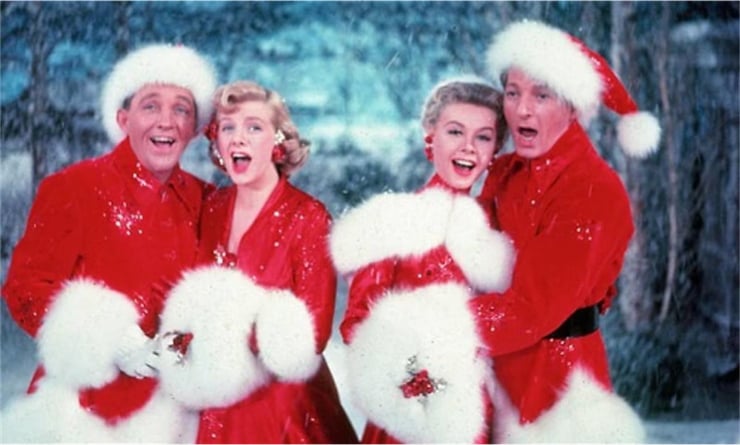Beneath the sentimentality and snow, this beloved Christmas classic reveals deeper themes about a nation striving to return to normalcy.
Few would dispute that the 1954 musical White Christmas is a classic holiday film, yet it doesn’t hold the same gravitas as It’s A Wonderful Life. While Frank Capra’s meditation on morality invites profound reflection, Bing Crosby’s crooning, Irving Berlin’s melodies, and Danny Kaye’s comic antics seem, at first glance, less weighty.
However, beneath its cheerful exterior, White Christmas is a poignant portrayal of a nation and its people navigating life after the upheaval of war. Its exploration of postwar adjustments—both personal and societal—makes it not just a true classic but also an especially resonant Christmas movie for today.
A Story of Transition and Adaptation
The film follows Bob Wallace and Phil Davis, former World War II soldiers turned successful entertainers, as they spend Christmas at a struggling Vermont inn owned by their former commanding officer, General Tom Waverly. With the help of two singing sisters, they save the inn, stage a spectacular Christmas show, and deliver the titular song just as snow begins to fall.
On the surface, it’s a lighthearted musical filled with song, dance, and romance. But at its core, White Christmas is a story of adjustment and transformation. General Waverly struggles to adapt to civilian life, longing for the purpose and structure of his military career. Wallace fares better, channeling his energy into work, though his partner Davis frequently urges him to slow down and focus on building a personal life.
The film is less about holiday cheer and more about the challenges soldiers face when reintegrating into civilian life. Notably, it features only one Christmas song but includes two numbers that directly address the difficulties of adjusting to peacetime.
From Casablanca to Christmas
Director Michael Curtiz, best known for Casablanca, offers a subtle continuation of his exploration of life during and after wartime. Like Casablanca, White Christmas reflects its contemporary moment, with Casablanca rallying audiences to war and White Christmas easing them back into normalcy.
In Casablanca, the U.S. Office of War Information even limited screenings to avoid inciting violence, and the Bureau of Motion Pictures lauded it for galvanizing support against fascism. Similarly, White Christmas offers its audience a blueprint for postwar life, demonstrating how to find joy and success in peacetime.
Wallace’s gratitude to Davis for pushing him into show business underscores the film’s message of resilience and adaptation. This theme is epitomized by Bing Crosby’s poignant rendition of “Count Your Blessings (Instead of Sheep),” a metaphor for abundance and gratitude.
A Celebration of Renewal and Comfort
The film’s conclusion, with the members of the 151st Division reuniting to surprise General Waverly, encapsulates its central message: it’s okay to embrace peace and prosperity after turmoil. The soldiers are thriving, many with families, and their happiness reflects the promise of renewal.
Once we recognize this theme, it becomes clear that White Christmas is a serious film at heart. It’s Curtiz’s answer to Casablanca, providing solace to those whose wartime passions he once stirred.
It’s also an ideal Christmas movie, not for its commercial trappings but for its deeper message: the opportunity for a fresh start. Soldiers become entertainers; entertainers become family men. The world heals, and life moves forward.
A Timeless Message for Today
This message was essential in postwar America, and it remains vital today. As our nation emerges from years of division and conflict—be it political, cultural, or otherwise—White Christmas reminds us of the value of unity, renewal, and focusing on what truly matters.
The film urges us to embrace the comfort and joy that follow hardship, celebrating life’s blessings in abundance. This holiday season, its message feels more timely than ever: let winter bring us peace, promise, and the kind of happiness that inspires song.











